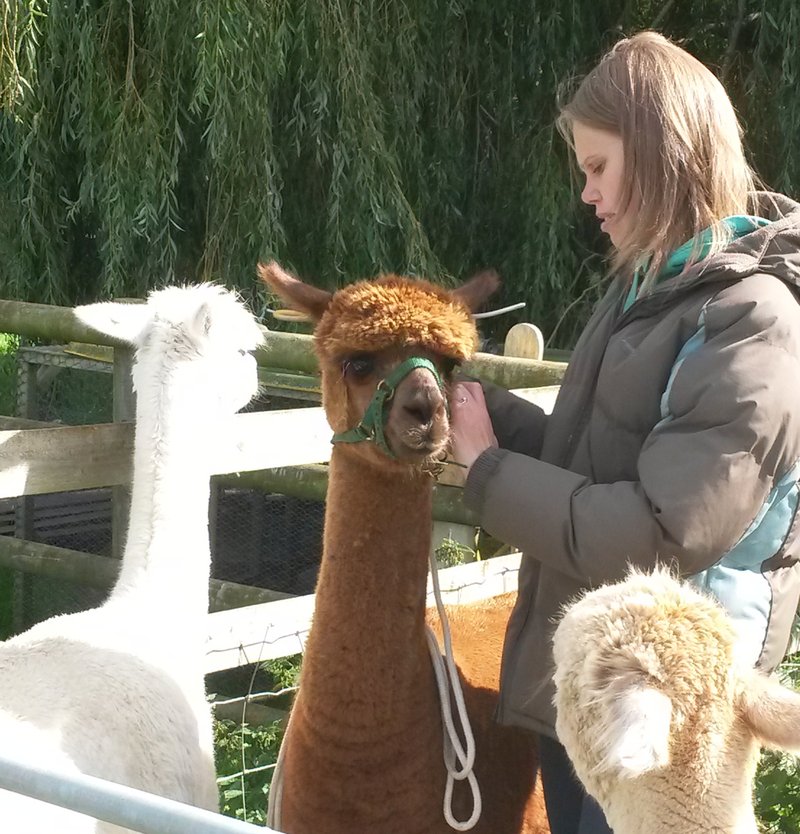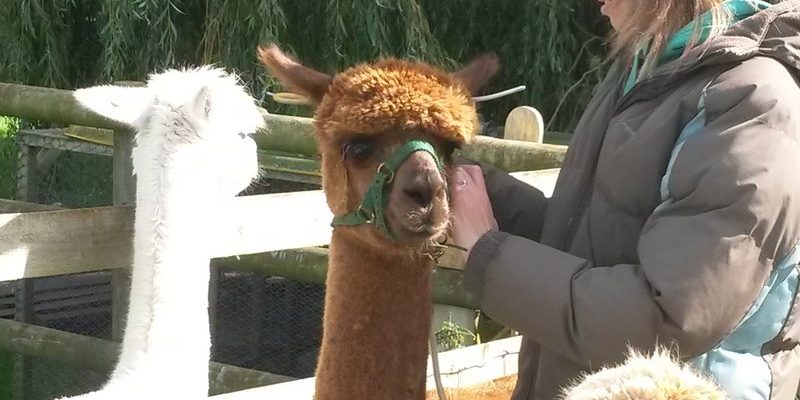
Alpacas are intelligent animals that respond well to gentle handling and positive reinforcement. Just like how we learn best when we feel safe and supported, alpacas thrive in an environment that fosters trust. So, if you’re considering bringing an alpaca into your life or simply want to understand them better, let’s explore some tips for handling and bonding with these unique animals.
Understanding Alpaca Behavior
Before you dive into training, it’s essential to understand how alpacas think and behave. Alpacas are prey animals, which means they are naturally wired to be wary of potential threats. This instinct can make them timid, especially around new people or unfamiliar environments.
You might notice that when you approach an alpaca, it may shy away or even run a short distance. This behavior isn’t disrespect; it’s just their survival instinct kicking in. To build a trusting relationship, it’s crucial to approach them slowly and quietly.
Imagine you’re meeting someone for the first time. You wouldn’t jump right in for a hug, right? Instead, you’d want to introduce yourself gradually. The same goes for alpacas. Spend time near them without trying to touch them at first. Let them come to you when they’re comfortable.
Establishing Trust with Your Alpaca
Building trust is the foundation for successfully training an alpaca. Start by spending time with them regularly. Whether it’s feeding them treats or just sitting quietly in their pen, these moments help the alpaca see you as a friend rather than a threat.
A great way to gain their trust is to use food. Alpacas love treats like carrots, apples, and specially formulated alpaca pellets. If you offer a tasty snack, they’ll associate you with something positive. Just remember to give treats sparingly to keep their diet balanced!
Here’s a tip: Always let the alpaca come to you for the treat. If you reach out to grab them, they might feel cornered. Instead, hold the treat close to your body and let them approach on their own terms.
Basic Training Techniques for Alpacas
Once your alpaca feels comfortable around you, it’s time to start training! The key to effective training is using positive reinforcement. This means rewarding your alpaca for desired behaviors so they want to do them again.
Start with basic commands like “come” or “stand.” Here’s how to do it:
1. Choose a Command: Decide what you want to teach—for example, getting your alpaca to come to you.
2. Use a Treat: Hold a treat in your hand. Call their name and the command in a cheerful tone, like, “Come here, Daisy!”
3. Reward: When they take a step towards you, reward them immediately with the treat. This helps them make the connection between the command and the action.
Be patient! It may take several sessions before they fully understand. Don’t forget to celebrate the small victories, like when they take a step closer or even just look at you!
Handling and Grooming Your Alpaca
Part of building a bond with your alpaca involves handling and grooming. Regular grooming not only keeps their fleece in good condition but also serves as a bonding activity. Most alpacas enjoy being brushed, which can also help them get used to your touch.
When you approach for grooming, be calm and gentle. Start by letting them sniff the brush before you use it on them. This way, they know what to expect. Gently brush in the direction of their fur and talk softly to them.
A tip? Grooming can be more effective in a quiet environment where your alpaca feels safe. Play some soft music or sit in a calm area.
Socialization: The Importance of Company
Alpacas are social animals that thrive in groups. If you’re considering having an alpaca as a pet, it’s best to have at least two. They get lonely and can become stressed without companionship.
If you have just one alpaca, spend extra time with them to ensure they feel loved and engaged. You can introduce toys or even other animals that they can get along with, like goats or sheep.
Socialization helps not just with bonding, but it also reduces anxiety in alpacas. A happy alpaca is one that feels secure in its environment and is more willing to learn and interact with you.
Advanced Training: Tricks and More
Once your alpaca has mastered basic commands and feels comfortable with handling, you can move on to more advanced training. Alpacas can learn tricks like walking on a lead, jumping over small obstacles, or even participating in obstacle courses.
To teach a trick, follow a similar process as before:
1. Choose a trick: Maybe you want them to jump over a small hurdle.
2. Use a command: Introduce a fun name for the trick, like “Jump!”
3. Guide them: Use a treat to guide your alpaca over the hurdle while encouraging them verbally.
4. Celebrate: When they accomplish the jump, celebrate with lots of praise and a treat!
The more fun and engaging the training is, the more likely your alpaca will want to participate.
Common Training Challenges and Solutions
Training isn’t always a smooth ride. You might face challenges, such as your alpaca being stubborn or easily distracted. Here are a few solutions to common training problems:
– Stubbornness: Some alpacas may just not want to cooperate. Try changing your approach. Sometimes, a different treat or a new command can reignite their interest.
– Distraction: If they get easily distracted, remove any visual noise from their environment. Train in a quiet area, away from other animals or loud sounds.
– Fearful Behavior: If your alpaca shows fear, take a step back. Go back to building trust before pressing into training. Listen to their body language—if they seem anxious, give them time.
Every alpaca is unique, and understanding their personality will go a long way in helping you win their trust.
Final Thoughts: A Rewarding Journey
Training an alpaca is a fulfilling journey that requires patience, understanding, and lots of love. As you bond with your alpaca through gentle handling and consistent training, you’ll discover the joys of having such a unique companion.
Remember, every small step counts. Keep your expectations realistic and enjoy the time spent together. The relationship you build with your alpaca will be rewarding, not just for you but for them, too. By prioritizing their comfort and happiness, you’ll create a lasting bond that enriches both your lives. So grab a treat, sit back, and enjoy this incredible experience of connecting with an alpaca.

